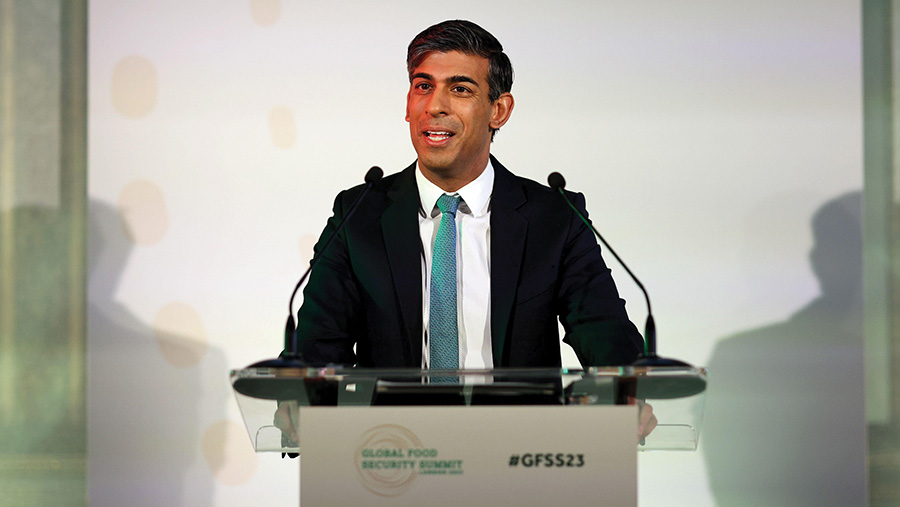Government snubs MPs’ call for annual UK food security summit
 © PA Images/Alamy Stock Photo
© PA Images/Alamy Stock Photo A group of cross-party MPs has expressed disappointment after the UK government rejected its calls to host an annual food security summit.
To maintain a consistent overview of the UK’s food security landscape, MPs from the influential Environment, Food and Rural Affairs (Efra) committee had called for an annually updated UK Food Security Report, together with an annual Food Security Summit, to be chaired by the prime minister.
In its response (PDF), the Conservative government made no commitment to any annual updates on food security, and flagged the Global Food Security Summit, which it is hosting in London today (Monday 20 November).
See also: UK needs independent food security committee, AIC says
Efra chairman Sir Robert Goodwill said “We would have liked the government to commit to updating the UK Food Security Report annually.
“The UK Food Security Report should be central to steering government strategy and policymaking on food security and, therefore, should be as up to date as possible.”
Under the 2020 Agriculture Act, the government is required to publish a food security report at least every three years. The latest report was due to be published on 24 September and an extension was granted until 27 October, but it has not yet been released.
Six months on from the inaugural Farm to Fork Summit, which was held by PM Rishi Sunak at 10 Downing St on 16 May, the NFU said “positive steps have been made” on food security.
These include the hiring of new agri-food attachés to sell more British food abroad and a government commitment to work towards a minimum 60% target on self-sufficiency in food – although this has still not been passed into legislation.
Supply chain fairness
NFU president Minette Batters said the government must deliver on its promises to back British farmers by building resilience and transparency in the UK food supply chain.
Speaking after her first meeting with new Defra secretary Steve Barclay, Mrs Batters said the “fractured” sugar supply chain, which has seen negotiations between the NFU and British Sugar over next year’s sugar price grind to a stalemate, is “an acute example of the burden put on primary producers”.
But she added: “Other sectors such as dairy, eggs and horticulture remain under pressure as Defra conducts the promised supply chain investigations into each one.”
Sunak unveils work on climate-resilient crops
Prime minister Rishi Sunak has announced a new science initiative to develop climate-resilient crops.
The new virtual science hub will be led by CGIAR, a global research partnership which unites international organisations working on food security, and will link UK scientists with research initiatives that develop crops that can withstand the impacts of climate change and are more disease resistant.
“We must take action to address the underlying, and often unseen, causes of global food insecurity,” said Mr Sunak, speaking at the Global Food Security Summit in London on Monday 20 November.
“From the impact of Russia’s war in Ukraine, to the effect of major natural disasters on food production, I am proud that alongside our partners, the UK is playing a leading role in finding solutions to some of the greatest global challenges of our time.”
Flood-tolerant rice, disease-resistant wheat, biofortified and vitamin-rich sweet potatoes are just some of the improved crops the UK has so far helped to develop through CGIAR’s advanced crop breeding.
